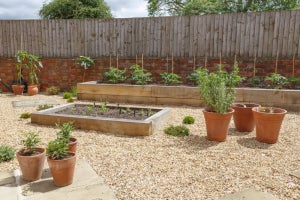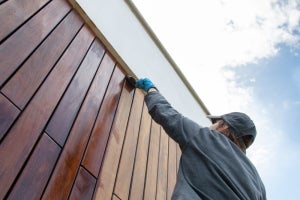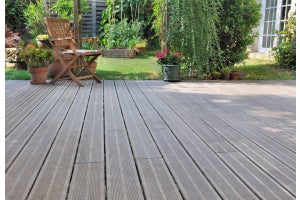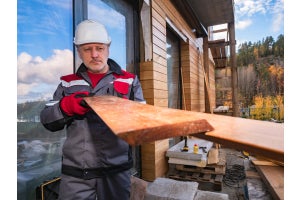garden improvements
-
May 29, 2025
Summer is a time when your garden really comes alive, and it's the perfect opportunity to tackle those important jobs that will keep your outdoor space looking fantastic all season long. After a cold winter and wet spring, many garden features need some attention to get them back to their best. At Mill Timber Direct, we know how much difference proper garden maintenance can make to a home. We stock everything you need for garden projects, from basic repair materials to complete makeover supplies. Here are the key jobs we recommend prioritising this summer to make the most of your outdoor space.
Getting Your Fence Back to Its Best
Your garden fence probably shows the most obvious signs of winter damage, which makes it a great place to start your summer garden refresh. Many fences just need a really good clean to look much better. You can use a pressure
-
September 11, 2023
Raised garden beds are a versatile and practical addition to any garden. Whether you're an experienced gardener or just starting out, these elevated planting areas offer numerous benefits for your garden, including improved soil quality and better pest control. In this post, we'll walk you through how to build a raised garden bed and explore the various uses and advantages they offer.
Building a Raised Bed
Before you dive into the construction of your raised bed, you'll need to gather materials and decide on a location. Follow these steps to get started:
1. Choose a Suitable Location
Select a sunny spot in your garden that receives at least 6 hours of sunlight each day, if possible. Additionally, ensure proper drainage to prevent waterlogged soil, which can harm your plants'
-
July 11, 2023
Building a fence is not only about providing security and privacy but also enhancing the overall appearance of your property. Our collection of treated planed timber at Mill Timber Direct offers a range of benefits that make it an excellent choice for constructing your fencing. From its versatility to its modern appearance, smooth edges and weather-resistant properties, treated timber provides homeowners with a durable and visually appealing option. In this post, we will explore the advantages of using treated and planed timber for making your own garden fencing.
Versatility and Flexibility
Treated timber offers versatility and flexibility, allowing you to customise your fencing to suit your specific needs. It can be easily cut and
-
May 15, 2023
Fencing panels are a common sight in many gardens and their primary purpose is to define the boundary of your property whilst providing privacy and security. They also have the benefit of making your garden look visually pleasing as you can choose to stain the panels in a range of different colours or add decorative elements and plants. However, as with any outdoor wooden structure, fence panels can be affected by the weather which can cause problems such as damage, rot and mould. In this post, we will explore how long fence panels can last and what factors can influence their lifespan.
How Long Should a Wooden Fence Last?
The average lifespan of a pressure-treated wooden fence panel is approximately 10 -15 years. This lifespan can be dependent on several factors, so it is not unusual for a fence to last only five years or, if conditions are right up to 30 years.
-
October 21, 2022
As temperatures gradually decrease, leaves start to fall from the trees, and the days become shorter. The autumnal garden changes to an array of vibrant colours. Now is the perfect time to prepare your garden for the coming year. Little changes can have a big impact later on, when the garden reawakens in the spring.
1. Lawn preparation
Small amounts of moss can be removed with a rake, and added to the compost heap. If your lawn has a significant amount of moss, consider applying a moss killer to the lawn first. Lawns that have a lot of moss will also need extra care in the spring. Add grass fertiliser to improve soil quality, to ensure better regrowth later on. If there are any bare patches, now is the time to put grass seed down, before the cold winter frosts appear.
2. Weed control
As the plants start to die back, weeds will become more noticeable. Be sure to pull up all the roots to avoid them growing back next year.







